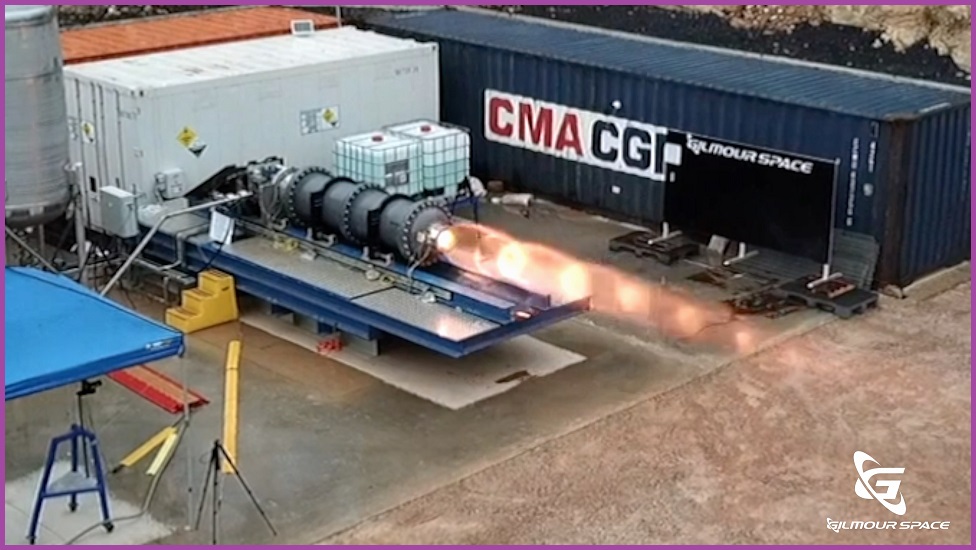Queensland startup Gilmour Space Technologies is one step closer to building its rocket for commercial space flight after a successful verification test of its hybrid fuel engine this month.
The company is aiming to launch its first payload next year and already has customers booked-in for future flights.
Co-founder and CEO Adam Gilmour said his hybrid propulsion system – which uses both liquid and solid fuels – gives his company an edge in reliability and cost.
“There have been a few key technical hurdles that prevented people working on hybrid systems in the past from generating high thrust and stable combustion,” he told Information Age.
“We’ve done a lot of research and development to overcome those problems so we now have hybrid engine that can generate high thrust.”
This month’s test saw the Gilmour engine produce 91 kilonewtons of thrust – making it many times more powerful than the liquid fuel Rutherford engine used by New Zealand space company Rocket Labs – to deliver small satellites into orbit.
Gilmour is confident the technology of his engine, which will be used during both stages of its orbital missions, will make his company competitive in the commercial space market.
“We want to compete with all the other rocket companies in the world and we think we can beat them,” he told Information Age.
“We have a world-class team with deep experience hired from all over the globe.”
Gilmour’s first paying customer will be the Australian Space Machines Company and said he already had other contracts signed, with a view to securing future work with defence and government entities.
On Wednesday, the South Australian government announced it was planning to launch six small satellites into low-Earth orbit using technology developed by two companies based in Adelaide’s Lot Fourteen innovation hub.
No company has yet been selected to launch what South Australian Premier Stephen Marshall called “a bold mission” to put local satellites into space.
It’s been slow going for Australia’s fledgling space industry as numerous applications for commercial launches in Australia have stalled thanks to red tape that independent senator Rex Patrick has warned could leave local space industry grounded.
Gilmour said he thinks regulators are moving in the right direction but that the industry still has some “teething problems” to work out.
“Everyone’s new to this,” he said. “I hope we spend this year solving some of those probs to get the process nice and slick.”
A former banker, Gilmour grew up disappointed that dreams of off-world colonies promised by the Apollo missions have stalled.
Now he hopes to one day send his own manned craft into space.
“We’re going to develop a series of vehicles that get bigger and bigger,” Gilmour said. "We have already hired people that have worked on human spacecraft for other companies.
“In 10-12 years we will put our first humans into space.”










